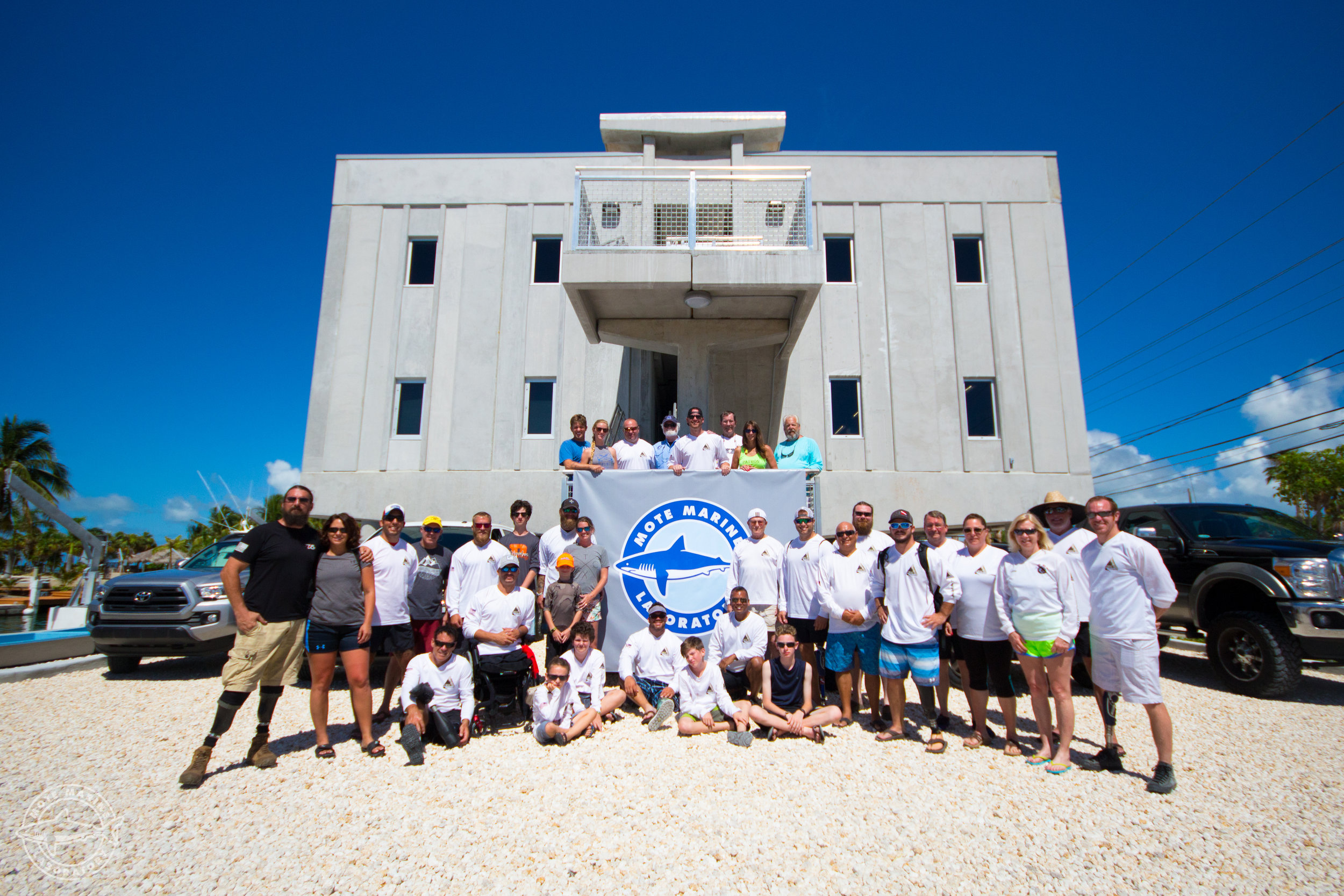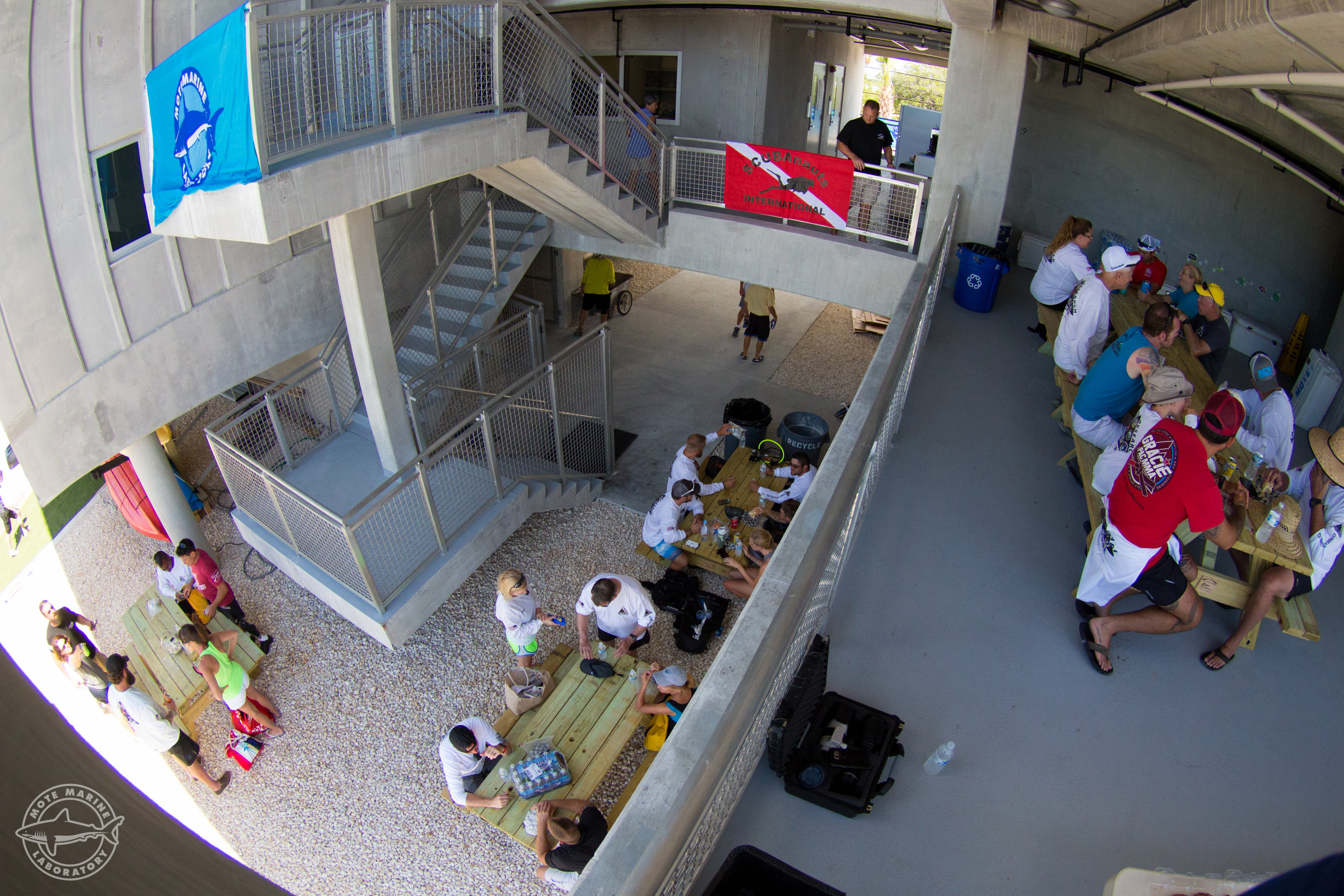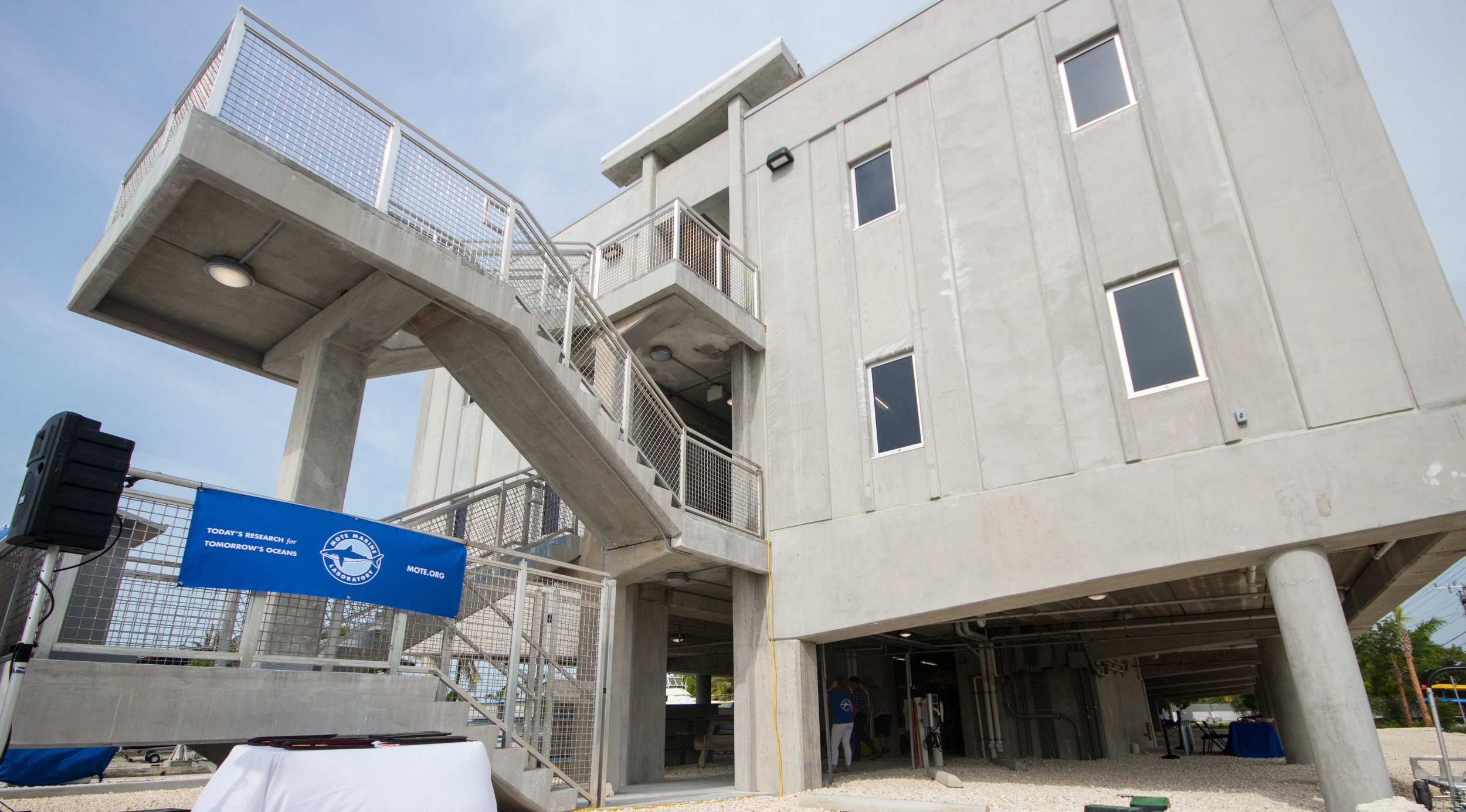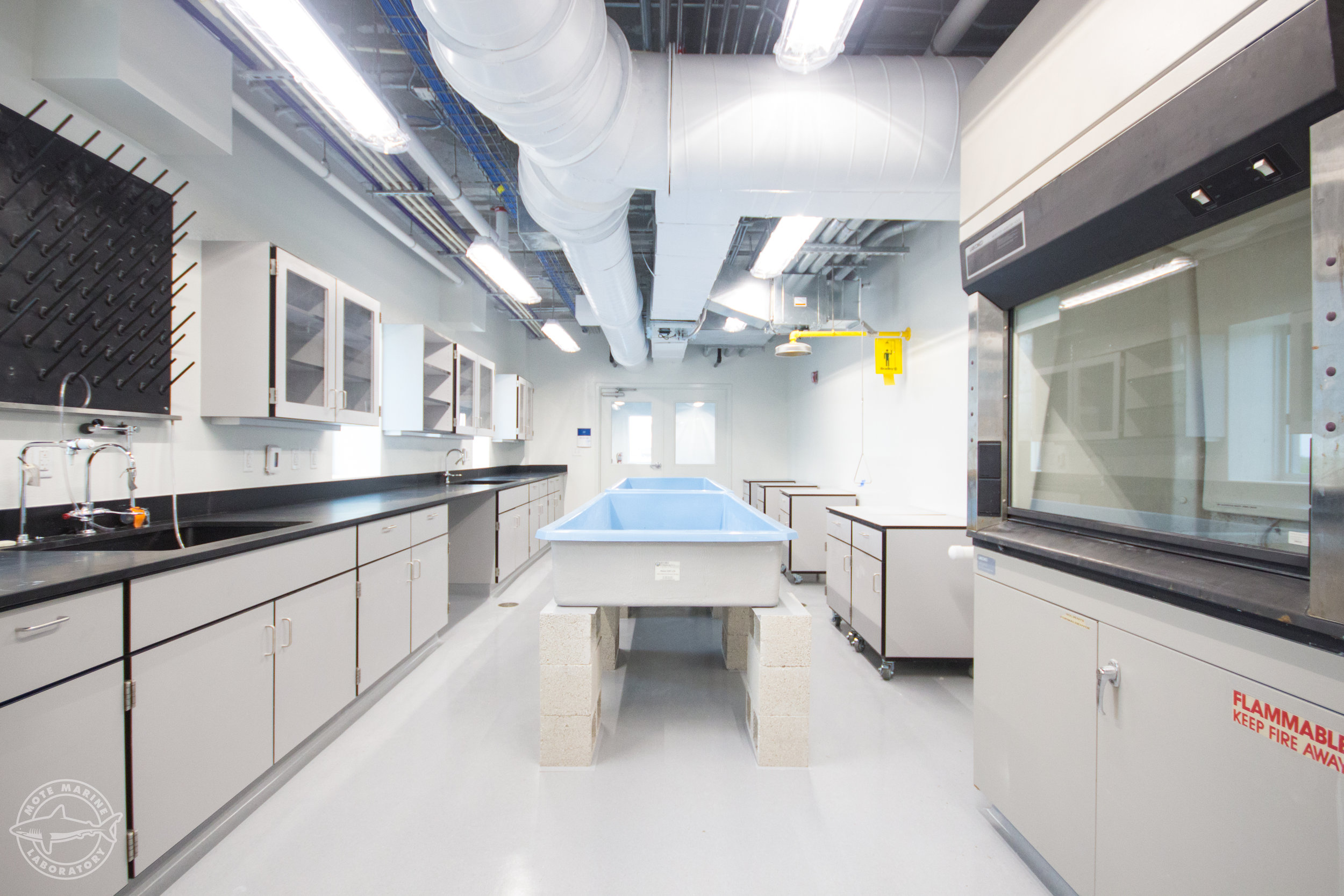Two Trails Inc. LEED Certified Project - Mote Lab: First LEED Gold Commercial Certification In Monroe County
(Parrish, FL) Two Trails Inc. - Sustainable Building Consulting has LEED certified the Mote Marine Laboratory’s coral reef research facility in the Florida Keys. The project has become the first U.S. Green Building Council LEED Gold Commercial certified building in Monroe County, honoring its outstanding, eco-friendly design and construction.
Mote’s Elizabeth Moore International Center for Coral Reef Research & Restoration (IC2R3), which opened in May 2017, is advancing Mote’s critical mission: marine research supporting conservation and sustainable use of natural resources. IC2R3, the newest facility among Mote’s five Florida campuses, works to address the grand challenges facing Earth’s “underwater rainforests”: coral reefs.
Dovetailing with that mission, LEED — Leadership in Energy and Environmental Design — is the world’s most widespread rating system for green buildings, according to the U.S. Green Building Council (USGBC).
“We planned for this facility to embody our ocean-friendly, planet-friendly mission — that was our vision from day one,” said Mote President & CEO Dr. Michael P. Crosby. “Now, as scientists and students from around the globe collaborate at this cutting-edge base of operations, they can take pride not only in what we achieve together but also how we achieve it — with great care for minimizing our environmental footprint.”
IC2R3 replaced older facilities at Mote’s Summerland Key campus, more than doubling its research space. There, Mote scientists raise and study more than 20 species of hard corals and maintain a broodstock reserve facility to produce thousands of coral fragments for reef restoration and for studies of coral resilience amid the warmer, more acidic oceans expected in Earth’s future. IC2R3 also serves hundreds of other scientists from more than 60 institutions worldwide who work to restore and protect reefs.
With Mote’s specifications in mind, Willis A. Smith Construction, Inc., built IC2R3 to include 30.1-kilowatt solar panels, a rainwater capture system, significant proportions of recycled and local building materials, and other eco-friendly features. The facility offers scientists and students eight residential suites, five offices, two wet labs and one prep lab on the second floor, three dry labs, one prep lab and one ocean acidification lab on the third floor, two electric car charging stations, two indoor classrooms, and one outdoor classroom.
“Willis Smith Construction’s goal was always to strive for USGBC LEED Gold certification for Mote’s new coral research facility,” said John LaCivita, Vice President at Willis Smith Construction. “With that in mind, even before we started putting ink to paper, we reviewed every line item on the LEED checklist and determined what would be possible in the Keys. Keeping those specific target items in mind, we then began the design collaboration. It worked!”
Photo Credit: Conor Goulding/Mote Marine Laboratory
The LEED Gold facility houses the Alfred Goldstein Institute for Climate Change Studies and offers scientists access to new seawater systems, raceways and experimental tanks for studying multiple reef species facing climate change impacts such as rising ocean temperatures and ocean acidification; molecular equipment to process and prepare samples for next generation sequencing and genomic analyses — for example, to find the best genetic strains of corals for reef restoration; microbial supplies for studying microscopic life forms that can help or harm coral reefs; a carbonate chemistry lab for ocean acidification research; and more.
Two Trails Inc. - Sustainable Building Consulting assessed IC2R3 for LEED Commercial certification. We documented these key features:
- Improvement of 37.9 percent energy efficiency from baseline, calculated using the American Society of Heating, Refrigerating and Air-Conditioning Engineers’ 90.1-2009 code. This model assessed the improved energy efficiency of Mote’s facility versus a comparable facility without the same energy-efficient LEED features and solar power.
- 17.6 percent of total energy consumed at the facility is generated on site from the rooftop solar photovoltaic installation.
- Water use is reduced 46.11 percent from baseline.
- Captured rainwater is collected in a 1,050-gallon cistern, reducing potable water use for sewage conveyance by 166 percent.
- 100 percent of landscaping consists of plants native to the Florida Keys and is xeriscaped with no irrigation required after establishment.
- Sunlight (including unwanted heat) is reflected by 99 percent of compliant non-roof surfaces and 100 percent of compliant roof surfaces. The goal is to reduce the “heat island” effect of development on microclimates and human and wildlife habitats.
- 80.74 percent of the facility’s construction waste was recycled or re-used, diverting it from the landfill.
- 22.36 percent of the total building materials’ content was manufactured using recycled materials.
- 53.08 percent of the total building materials’ value includes materials and products manufactured and extracted within 500 miles of the project site.
“To Mote Marine Laboratory, Willis Smith Construction and to all those involved on the project team, we salute you — the dedication to sustainable design and development embodied in this project is something we all should be very proud of," said Josh Kane, LEED & NGBS Project Manager for Two Trails Inc. - Sustainable Building Consulting.
IC2R3’s construction, outfitting, and scientific infrastructure value about $7 million total. All support to-date has come from philanthropic giving. The following supporters have made major contributions toward Mote’s IC2R3 facility and its mission:
- The Gardener Foundation, the Founding Donor
- Elizabeth Moore, Leadership Donor and building namesake
- The Rick and Nancy Moskovitz Foundation
- Alfred and Ann Goldstein Foundation
- Charles and Margery Barancik Foundation.
- Jane’s Trust Foundation
- Dart Foundation
These incredible supporters and countless other community members have helped make IC2R3 a stronghold of hope for coral reefs’ survival and recovery. Beyond USGBC LEED Gold certification, the building is Category-5 hurricane resistant, which allowed it to shelter Mote’s coral gene bank during Hurricane Irma.
“This sustainable facility will serve our mission for decades — saving resources and energy costs for the lifetime of the building,” said Mote’s Vice President of Facilities, Derek Templeton. “It certainly is a lab for the future.”
For more information on Two Trails Inc., visit TwoTrails.com.
ABOUT TWO TRAILS INC: Two Trails, Inc. is a National Sustainable Building Consulting firm established in 2001 with offices in Florida, Nevada, and Illinois. We provide sustainable consulting services nationwide for Commercial, Government, Commissioning, Multi-Family, Residential and looking to obtain LEED USGBC (U.S. Green Building Council), ICC 700 National Green Building Standard, Energy Star, & Florida Green Building Coalition (FGBC) certifications.
Our COO, Drew M. Smith, LEED AP, was the founding President of the Florida Green Building Coalition and is the first Governor appointed Green Building Commissioner for the State of Florida. Two Trails, Inc. provides hands-on consulting making it easy to achieve certification.
ABOUT MOTE: Mote Marine Laboratory & Aquarium is an independent, 501(c)3 nonprofit research organization founded in 1955. Mote began with the passion of a single researcher, Dr. Eugenie Clark, her partnership with the community. and philanthropic support, first of the Vanderbilt family and later of the William R. Mote family.
Today, Mote is based in Sarasota, Florida, with field stations in eastern Sarasota County and the Florida Keys. Mote is home to more than 20 scientific programs dedicated to today’s research for tomorrow’s oceans, emphasizing conservation and sustainable use of marine resources. Mote’s vision also includes positively impacting public policy through science-based outreach and education. Showcasing this research is Mote Aquarium, open from 10 a.m. to 5 p.m. 365 days a year. Learn more at mote.org.




